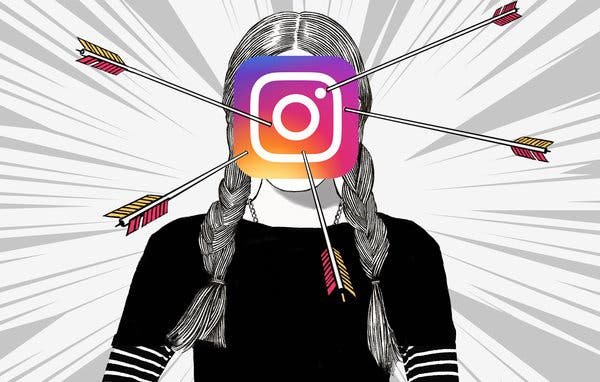All You Need to Know About the Trending Cancel Culture

Cancel culture refers to the popular practice of withdrawing support for (cancelling) public figures and companies after they have done or said something considered objectionable or offensive. Cancel culture is generally discussed as being performed on social media in the form of group shaming.
The term ‘cancel’ is a relatively straightforward one; a purchase is ‘cancelled’ if it isn’t needed any more. Merriam Webster says an advertisement campaign is ‘cancelled’ if it is inappropriate or is an unsuccessful marketing strategy. A television show is ‘cancelled’ if it manages only abysmal ratings. For the longest time, the meaning of the term ‘cancel’ hasn’t been very complex, but sometime in the past decade, it has acquired a new definition, particularly in the context of internet lingo.
This cancel culture functions extensively if the internet collectively decides that it needs to be so. The term ‘collectively’ is important here because the cancelling of something is really a result of a mass movement, collective in form and force.
Cancel culture is relatively new; it only surfaced in the last five to six years and has been largely a product of internet culture. One of the reasons why the term’s exact meaning is still being ascertained is perhaps because it is relatively new, and its scope is still evolving with developing online behaviour.
The most visible examples of cancel culture occur when a celebrity or public figure says or writes something or engages in an act that is deemed offensive and inappropriate by the public. J.K. Rowling is ‘cancelled’ because of her transphobic views. Cardi B and Nicki Minaj are ‘cancelled’ because they made homophobic comments. Trump is ‘cancelled’ because of his racist, inappropriate conduct and words towards women, people of colour and immigrants. Kanye West is ‘cancelled’ for saying slavery was a ‘choice’ and for supporting Trump.
This cancelling occurs by pressuring the individual’s workplace to fire them, pressuring brands to drop their association with the offending individual, using threats of boycott or engaging in any other action that impacts the individual’s reputation or finances.
When did cancel culture arrive?
The specific date is debatable, but some observers believe that its arrival coincided with the #MeToo movement, that first started with women opening up about being subjected to violence and abuse using public platforms to share their experiences. According to some others, conservatives in the United States have historically engaged in a form of cancel culture that existed in days prior to the arrival of the internet, when things or people did not align with their conservative views.
Columnist Mehdi Hasan writes in The Washington Post: “The list of conservative “cancel culture” targets stretches back decades, long before the dawn of the Internet. In 1966, right-wing Christians tried to cancel John Lennon, after he claimed the Beatles were “more popular” than Jesus. The British band received death threats in the United States and a Birmingham, Ala., radio station announced a bonfire and invited teens to burn their Beatles records.”
One of the characteristics of cancel culture is also the tendency to ‘pile-on’, where social media users engage in mass behaviour by specifically targeting the individual who is being publicly called out. Last month during a speech that he made at Mt. Rushmore, US President Donald Trump appeared to call out “cancel culture”, perhaps because he himself has been a target so often, particularly since he first announced his presidential campaign. It is “the very definition of totalitarianism,” and “completely alien to our culture and our values” with “absolutely no place in the United States of America”, Trump had said.
Following Trump’s speech, White House press secretary Kayleigh McEnany doubled down on Trump’s stance saying: “President Trump stands against … cancel culture, which seeks to erase our history.”
Does cancel culture work?
The debates surrounding cancel culture have also led to discussions on whether ‘cancelling’ someone or something has any long-term impact. In a broader sense, cancel culture is a form of collective punishment meted out to public figures and these days, more increasingly private individuals, who have suddenly found themselves in the public gaze due to words and actions of their own.
Cancel culture is also about enforcing some degree of accountability on an individual, although there have been arguments whether it is justified or not, particularly from a legal perspective. An example of this would be discussions that followed when reports surfaced of public figures having engaged in inappropriate acts or acts of violence and abuse against women when the #MeToo movement gained traction in 2016.
One of the most visible examples of the application of cancel culture was when Ben Affleck was sued by two women for sexual harassment on the set of the mockumentary ‘I’m Still Here’. The actor had settled both cases out of court, but these reports resurfaced during the 2017 Oscars when he was nominated and subsequently won the award for ‘Best Actor’ for ‘Manchester By the Sea’. At that time, social media users had tried to ‘cancel’ Affleck, to hold him accountable for both incidents and public opinion was strongly against the actor being lauded and recognised by the Academy Awards.
Vox points to the example of American actor Kevin Hart who didn’t appear to face any real accountability for his homophobic tweets and the purported jokes the actor had made in the past. When these reports surfaced, Hart was forced to step down as host of the 2019 Academy Awards. Critics pointed to how Hart neither genuinely apologised for his conduct and nor was he impacted financially or career-wise for these tweets and jokes.
During the 2016 elections, when reports surfaced of Trump speaking about women in an offensive and degrading manner, not only did it not significantly impact his business interests, but he went on to occupy the highest public office in the United States.
Arguments against cancel culture are rooted in a few central concepts. One of these is the theory that since humans are a fundamentally flawed species and everyone has their own tally of toxicities, then eventually everyone would get “cancelled”. How can we properly determine what is a redeemable mistake and what is a blatant display of discrimination and/or disregard?
Marginalized communities are constantly being put on blast for aspects of their existence. When celebrities use their platform to perpetuate that demonization, they can’t be surprised when said communities call them out and demand accountability.
Cancellation has inherited complexities, making it a hard thing to wholly believe and participate in. It is true that not every cancellation is completely justified. There is a holier-than-thou aspect to this phenomenon that ruins it for those that are truly trying to make a change in the way we interact with one another. Condemning people for things like racism, homophobia, assault, etc. is just common decency, not a result of the theorized collapse of Western humour.
The distinction between petty and justified cancellation can be boiled down to mendability. For example, some have tried to cancel Rihanna for openly forgiving her abuser, Chris Brown, during her interview with Oprah in 2012. Arguments against the mogul questioned her tolerance for abuse and support of victimizers, but you cannot condemn someone for forgiving another after wronging them. However, you can and should stop supporting someone who has openly displayed objectively offensive and harmful behaviour. I understand the push and pull that comes along with enjoying someone’s art but not approving of who they are as a person, but Brown’s music alone does not make up for his longstanding history of problematic actions.
Circling back to the relationship between political and social matters, the Time’s Up movement was one that began as an open letter of solidarity that then flourished into the viral development #TimesUp.
Written by Alianza Nacional de Campesinas and published by TIME in late 2017, the open addressment of the Weinstein scandal and connection is made to those who are not of star status, created unanimity among all survivors of sexual violence. Boiling it down to layman’s slang, this public message, leading to the cyber collection, initiated the cancellation of accused rapist Harvey Weinstein.
Without this publicized callout and demand for accountability, the change that followed would not have occurred when it had. What he did not only tanked his public reputation but also served as an example as to what collective rallying can do, even if only acknowledged in hashtag form.
The Time’s Up movement, along with others like it (i.e. “#Me Too”), expanded into the political sphere. Group persistence, both online and with boots-on-the-ground efforts, catalysed resignations from abusive political figures, called for laws surrounding harassment and sex discrimination to better support victims and prompted revealing court cases against powerful abusers (i.e. Ford v. Kavanaugh).
Courageous activists and organizers called for the assembly of those who understood, empathized, and even shared their experiences in order to ignite change.
Some of the brands targeted by cancel culture:
Pepsi: Criticised for a controversial ad that appropriated global protest movements including Black Lives Matter
Equinox: The gym club brand faced a backlash after it emerged that its owner was holding a Trump fund-raiser
Starbucks: Was targeted for telling employees not to wear Black Lives Matter T-shirts and badges
Nike: Released a shoe with the original US flag. The flag has only 13 stars and comes from a time when slavery was legal
Uncle Ben's: Changed its name and branding after criticism over racial stereotyping
Personal opinion vs. Consumer outrage
It is not always an offence by the brand that causes a company to be targeted. Over the summer, as cancel culture's impact was swelling, Goya Foods, the largest Hispanic-owned food brand, found itself as the target.
The cancelling came after the company's chief executive, Robert Unanue, attended an event at the White House where he praised President Donald Trump.
Cancellers claimed that praising President Trump, whose policies they said were harmful to the Latino community in the US, showed that Goya and its executives did not support the same values as its customers.
The cancel culture pile-on was swift. Pictures of people throwing away Goya products and buying other brands circulated, along with the hashtags #Goyaway and #BoycottGoya trending within hours of the event.
Politicians including Alexandria Ocasio-Cortez, celebrities such as Lin-Manuel Miranda all took to social media to say they would no longer be buying Goya products.
Crisis PR adviser Alexis Odesser says there is not just a desire but "real expectation" that brands will live up to their customers' values.
"People are making buying decisions with these things in mind," she says.
Notably, for Goya, the target of cancellation wasn't the chief executive, it was the company itself.
Targeting the company rather than the individual can be more likely to produce long-term change, according to For Harriet's Ms Foster.
Like Mr. Paulinich, she says the internet has empowered marginalised groups to speak up about offences. But she cautions that cancel culture needs to find ways to let their targets make amends.
"If we are going to invest in letting people know when they have stepped out of the bounds of what society finds tasteful or appropriate, then we also need to be sure we have ways of letting people know how they can repair the harm they have done," Ms Foster says.
For business, that may be changing a brand name or firing an employee to demonstrate that the company's values match those of its customers. But for individuals who are cancelled, the costs are likely to be more long-term.
Cancel Culture is one of the more complicated trends to hit the internet in recent years. Some argue that it’s too harsh, others argue that it just doesn’t have any real consequences. Certainly, it has ruined people’s reputations and chances at business opportunities, in many cases rightly so, but it has also created a mob-like mentality, thereby any minuscule mistake makes it open season for intense backlash.















































